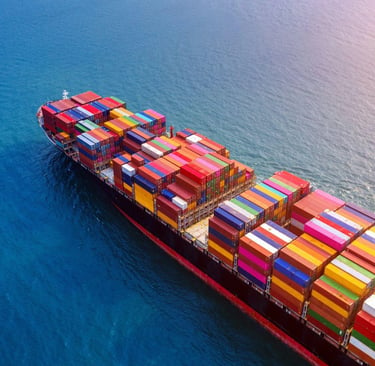Calculating Your True Landed Cost: A Step-by-Step Guide for Charcoal Importers
A guide for B2B charcoal importers on accurately calculating landed cost. Learn to factor in FOB price, freight, insurance, and duties to understand your true profitability.
HOOKAH/SHIHABBQ
Tropicoal Team
8/27/20252 min read


For any import business, the price you pay your supplier is just the beginning of the story. To truly understand your profitability, you must calculate the Landed Cost—the total cost of a product up until the moment it arrives at your warehouse door. Miscalculating this figure is one of the most common and costly mistakes new importers make. This guide breaks down the essential components.
What is Landed Cost? The formula is simple in theory: Landed Cost = Product Cost + Shipping Costs + Customs Fees + Risk Mitigation Costs
Let's look at each component.
Step 1: The Product Cost (Your FOB Price) This is the price per ton you pay your supplier. In most cases, this will be the FOB (Free On Board) price, which means the price includes getting the goods loaded onto the ship at the port of origin.
Example: 18 tons of briquettes @ $1000/ton (FOB) = $18,000
Step 2: Shipping & Freight Costs This is the cost to transport the container from the origin port to your destination port. You will arrange this with a freight forwarder.
What to include: Ocean freight, fuel surcharges, and any handling fees at the origin port.
Example: $3,500 for a 20-foot container.
Step 3: Customs, Duties, and Taxes When the goods arrive in your country, they must clear customs. This involves several costs:
Customs Duties/Tariffs: A percentage of the goods' value, determined by your country's tariff codes.
VAT/GST: Value-Added Tax or Goods and Services Tax that may be applicable.
Brokerage Fees: The fee you pay a customs broker to handle the paperwork.
Example: Let's estimate this at 10% of the FOB value ($1,800) + $500 in fees = $2,300
Step 4: Risk Mitigation & Local Costs This covers insurance and final transport.
Cargo Insurance: Absolutely essential to protect against damage or loss at sea.
Local Transport: The cost of trucking the container from your destination port to your warehouse.
Example: $400 for insurance + $800 for local trucking = $1,200
Calculating the Final Landed Cost Now, let's add it all up:
$18,000 (Product) + $3,500 (Freight) + $2,300 (Customs) + $1,200 (Insurance/Local) = $25,000 Total Landed Cost
To find your true cost per kilogram, you divide the total cost by the total weight:
$25,000 / 18,000 kg = $1.39 per kg
This $1.39/kg figure is your actual cost. You must use this number—not the initial $1.00/kg FOB price—to calculate your selling price and profit margins.
Conclusion Accurately calculating your landed cost is a fundamental skill for any successful importer. While it may seem complex, a transparent and professional supplier will provide you with all the necessary weight and product details (like the HS code) to make these calculations straightforward.
At Tropicoal.id, we believe in empowering our partners. We provide all necessary documentation to help you calculate your costs accurately and build a profitable business.
Contact
Cluster Rossini, Jalan Rossini Selatan II No. 10 Tangerang Regency 15330
Support
Premium Charcoal Briquettes for Shisha and BBQ. Clean burn, minimal ash, and long-lasting heat for superior flavor and performance.
Follow Us


